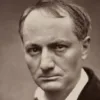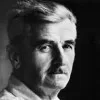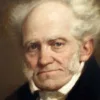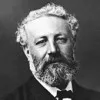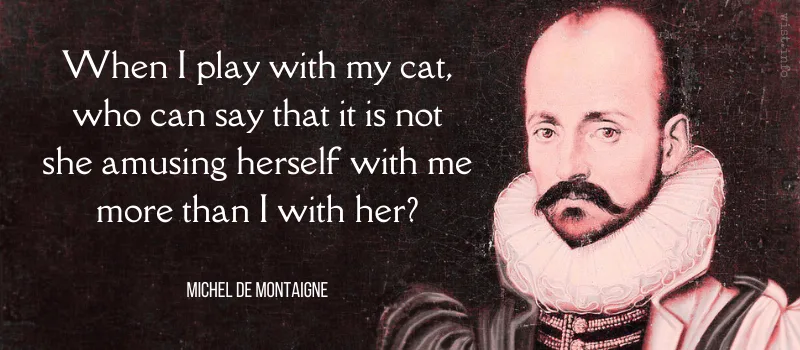Chuse such Pleasures, as recreate much, and cost little.
Thomas Fuller (1654-1734) English physician, preacher, aphorist, writer
Introductio ad Prudentiam, Vol. 1, # 61 (1725)
(Source)
Quotations about:
pastime
Note not all quotations have been tagged, so Search may find additional quotes on this topic.
Do not, on a rainy day, ask your child what he feels like doing, because I assure you that what he feels like doing, you won’t feel like watching.
Vacation cruises are advertised as luxurious journeys to exotic places, but a chief pleasure is the reading of books [….] On steamer chairs topside or poolside, in the lounges, everywhere you see men and women with their noses in books, devouring them for hours. The Book: Man’s Chief Weapon Against Tedium. Woman’s too.
Garrison Keillor (b. 1942) American entertainer, author
“The Floating Village,” New York Times (2010-01-06)
(Source)
Who does not take pleasure in childish toys?
[τίς δ᾽ οὐχὶ χαίρει νηπίοις ἀθύρμασιν]
Euripides (485?-406? BC) Greek tragic dramatist
Auge [Αὐγῃ], frag. 272 [Heracles] (c. 408 BC) [tr. Collard/Cropp (2008)]
(Source)
Nauck frag. 272, Barnes frag. 20, Musgrave frag. 5. (Source (Greek)). Alternate translations:Who is not pleas'd with children's harmless sports?
[tr. Wodhall (1809)]Who does not find delight in childish amusements?
[Source]
Where other powers of entertainment are wanting, the true philosopher will derive benefit from such as are given.
The only way to forget time is to make use of it.
[On ne peut oublier le temps qu’en s’en servant.]
Charles Baudelaire (1821-1867) French poet, essayist, art critic
Journaux Intimes [Intimate Journals], “Mon cœur mis à nu [My Heart Laid Bare],” § 111 (1864–1867; pub. 1887) [tr. Sieburth (2022)]
(Source)
(Source (French)). Alternate translations:One can only forget Time by making use of it.
[tr. Isherwood (1930)]One can only forget about time by making use of it.
[Common, e.g.]
One of the saddest things is that the only thing that a man can do for eight hours a day, day after day, is work. You can’t eat eight hours a day nor drink for eight hours a day nor make love for eight hours — all you can do for eight hours is work. Which is the reason why man makes himself and everybody else so miserable and unhappy.
William Faulkner (1897-1962) American novelist
Interview (1956, Spring), by Jean Stein, “The Art of Fiction,” Paris Review, No. 12
(Source)
Collected in Malcom Cowley (ed.), Writers at Work (1958)
Ordinary men are intent merely on how to spend their time; a man with any talent is interested in how to use his time.
[Die gewöhnlichen Leute sind bloß darauf bedacht, die Zeit zuzubringen; wer irgend ein Talent hat, — sie zu benutzen.]
Arthur Schopenhauer (1788-1860) German philosopher
Parerga and Paralipomena, Vol. 1, “Aphorisms on the Wisdom of Life [Aphorismen zur Lebensweisheit],” ch. 2 “Of What One Is” [Von dem, was einer ist]” (1851) [tr. Payne (1974)]
(Source)
(Source (German)). Alternate translation:Ordinary people think merely how they shall spend their time; a man of any talent tries to use it.
[tr. Saunders (1890)]
Dreams, books, are each a world; and books we know,
Are a substantial world, both pure and good:
Round these, with tendrils strong as flesh and blood,
Our pastime and our happiness will grow.
Now when an American has an idea, he directly seeks a second American to share it. If there be three, they elect a president and two secretaries. Given four, they name a keeper of records, and the office is ready for work; five, they convene a general meeting, and the club is fully constituted.
[Or, quand un Américain a une idée, il cherche un second Américain qui la partage. Sont-ils trois, ils élisent un président et deux secrétaires. Quatre, ils nomment un archiviste, et le bureau fonctionne. Cinq, ils se convoquent en assemblée générale, et le club est constitué.]
Jules Verne (1828-1905) French novelist, poet, playwright
From the Earth to the Moon, ch. 1 “The Gun Club” (1865)
(Source)
You do not play then at whist, sir! Alas, what a sad old age you are preparing for yourself!
[Vous ne jouez donc pas le whist, monsieur? Hélas! quelle triste vieilesse vous vous préparez!]
Endeavor to make thy own Company pleasant to thee.
Thomas Fuller (1654-1734) English physician, preacher, aphorist, writer
Introductio ad Prudentiam, Vol. 1, # 99 (1725)
(Source)
Let us go singing as far as we go: the road will be less tedious.
[Cantantes licet usque (minus via laedit) eamus.]
Virgil (70-19 BC) Roman poet [b. Publius Vergilius Maro; also Vergil]
Eclogues [Eclogae, Bucolics, Pastorals], No. 9 “Lycidas and Moeris,” l. 64ff (9.64) [Lycidas] (42-38 BC)
(Source)
(Source (Latin)). Alternate translations:Singing lets goe, the way shall better please.
[tr. Ogilby (1649)]A Song will help the beating Storm to bear.
[tr. Dryden (1709), l. 89]Light song will ease the road of half its care.
[tr. Wrangham (1830), l. 76]Yet we may still go on singing; the way will be less tedious.
[tr. Davidson (1854)]Singing let us journey on --
(The way will seem less tedious).
[tr. Calverley (c. 1871)]We may as well sing -- it makes the journey less irksome.
[tr. Wilkins (1873)]Move on, and should the way seem long,
Shorten the distance with a song.
[tr. King (1882), ll. 915-916]Walk on, and make
The road less tedious with our verse.
[tr. Palmer (1883)]Then singing let us go,
our way to lighten.
[tr. Greenough (1895)]Let us go on still singing; the way is less tedious.
[tr. Bryce (1897)]We may go singing all the way, and the road weary us the less.
[tr. Mackail (1899)]Let us go singing to beguile our way.
[tr. Mackail/Cardew (1908)]Let us go forward singing, for the path
Tires us less so.
[tr. Williams (1915)]We may yet go singing on our way -- it makes the road less irksome.
[tr. Fairclough (Loeb) (1916)]Let us sing carols all the way: 'twill be
Less tedious.
[tr. Royds (1922)]Why not go forward singing all the way? It makes the going easier.
[tr. Rieu (1949)]We still may sing as we go and lighten the journey.
[tr. Johnson (1960)]We can press on,
Singing as we go: a song lightens a long road.
[tr. Day Lewis (1963), ll. 63-64]Let's keep on going, but singing as we go.
Sing makes the journey easier.
[tr. Ferry (1999)]We might go along singing (the road will be less tedious).
[tr. Kline (2001)]
Most people, when they are left free to fill their own time according to their choice are at a loss to think of anything sufficiently pleasant to be worth doing. And whatever they decide on, they are troubled by the feeling that something else would have been pleasanter. The ability to fill leisure intelligently is the last product of civilization, and at present very few people have reached this level.
Bertrand Russell (1872-1970) English mathematician and philosopher
Conquest of Happiness, Part 2, ch. 14 “Work” (1930)
(Source)
PROSPERO:Me, poor man, my library
Was dukedom large enough.William Shakespeare (1564-1616) English dramatist and poet
Tempest, Act 1, sc. 2, l. 130ff (1.2.130-131) (1611)
(Source)
The time you enjoy wasting is not wasted time.
Bertrand Russell (1872-1970) English mathematician and philosopher
(Misattributed)
Misattributed to many modern authors besides Russell, including John Lennon, T. S. Elliot, and Soren Kierkegaard.
The frequent misattribution to Russell is from the phrase being used by Lawrence J. Peter in Peter's Quotations (1977) about a different Russell quote ("The thing that I should wish to obtain from money would be leisure with security"). In turn, the words were not original with Peter: the earliest citation for this quote is Marthe Troly-Curtin, Phyrnette Married, ch. 29 (1912).
More information on the history of this quotation: Time You Enjoy Wasting Is Not Wasted Time – Quote Investigator®.
When I play with my cat, who can say that it is not she amusing herself with me more than I with her?
[Quand je me jouë à ma chatte, qui sçait, si elle passe son temps de moy plus que je ne fay d’elle?]
Michel de Montaigne (1533-1592) French essayist
“Apology for Raymond Sebond [Apologie de Raimond de Sebonde]” (1588–1592), Essays, Book 2, ch. 12 (1595) [tr. Ives (1925)]
(Source)
(Source (French)). Alternate translations:When I am playing with my Cat, who knowes whether she have more sporte in dallying with me, then I have in gaming with hir?
[tr. Florio (1603)]When I play with my cat, who knows whether puss is not more diverted with me than I am with puss?
[tr. Cotton (1686)]When I play with my cat who knows whether I do not make her more sport than she makes me?
[tr. Cotton/Hazlitt (1877)]When I play with my cat, who knows if I am not a pastime to her more than she is to me.
[tr. Frame (1943)]When I play with my cat, how do I know that she is not passing time with me rather than I with her?
[tr. Screech (1987)]
“I wish life was not so short,” he thought. “Languages take such a time, and so do all the things one wants to know about.”
J.R.R. Tolkien (1892-1973) English writer, fabulist, philologist, academic [John Ronald Reuel Tolkien]
The Lost Road, ch. 1 [Alboin] (1987) [ed. C. Tolkien]
(Source)
CALVIN: The only skills I have the patience to learn are those that have no real application in life.
Bill Watterson (b. 1958) American cartoonist
Calvin and Hobbes (1993-07-03)
(Source)
After performing a series of tricks with a yo-yo.






